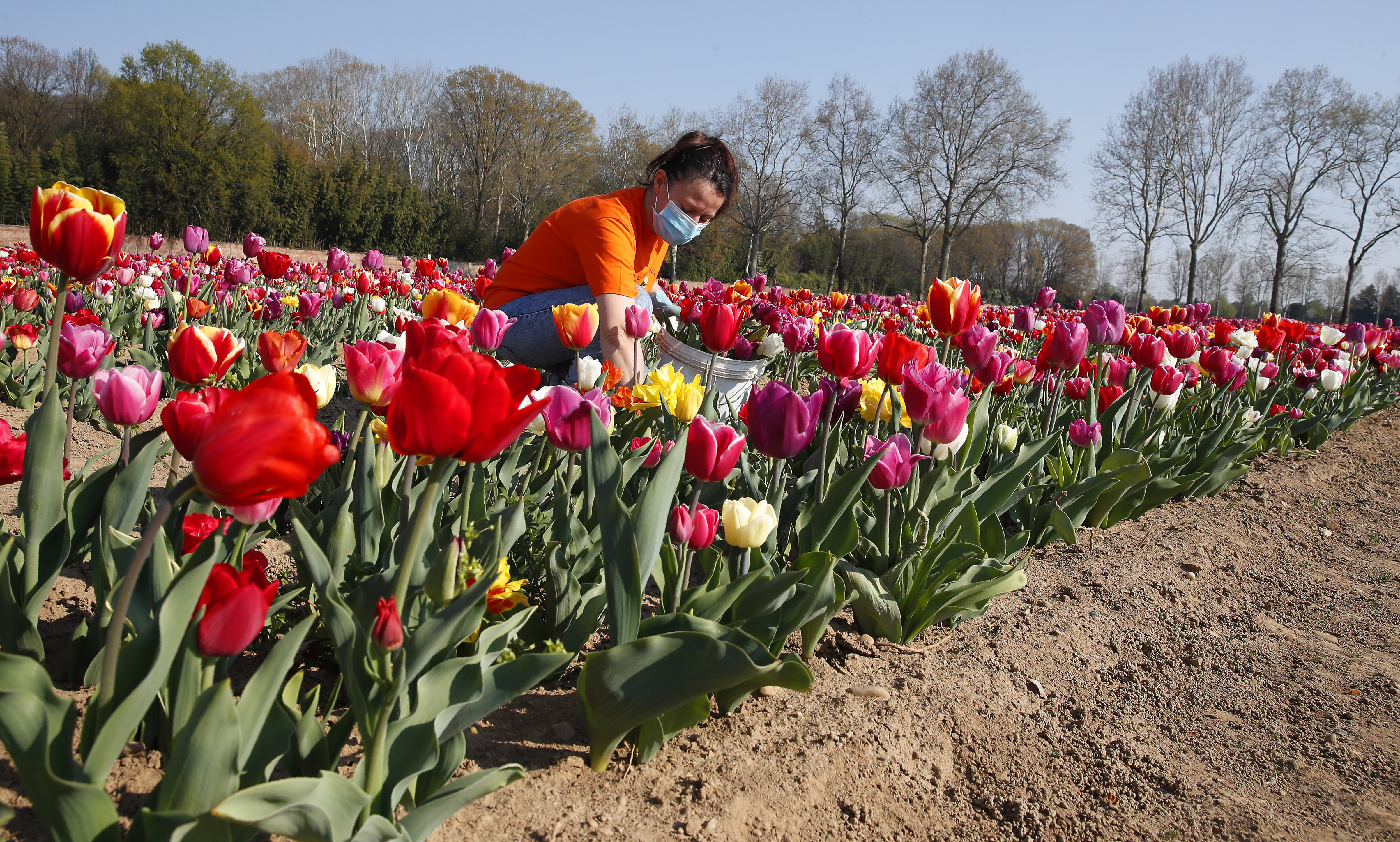For tulip growers in the Netherlands, Friday the 13th of March this year was a true horror show. When tulip stems came up at the country’s largest flower market in Aalsmeer, the prices stalled over and over again at zero.
Frank Uittenbogaard, a director of JUB Holland, a 110-year-old family farm in Noordwijkerhout, made the tough decision to destroy his tulip stems — 200,000 of them.
“That hurt a lot,” he said in a telephone interview on Thursday. “It’s very painful because you start in July with digging the bulbs and you have to give them the right treatment to plant them in October, and later move them to the greenhouse. We had very good quality tulips this year. I took my bike and went cycling when they did it because I couldn’t handle it.”
He wasn’t the only grower who had to dump tulips: About 400 million flowers, including 140 million tulip stems, were destroyed over the past month, estimates Fred van Tol, manager of international sales for Royal FloraHolland, the largest cooperation of flower and plant producers in the Netherlands.
Demand for tulips dropped precipitously as flower shops around the globe have shut down because of the outbreak, consumers have gone into lockdown and celebrations have been cancelled.
“This virus hit us right in the middle of the tulip sales,” van Tol said. “In total, four weeks out, the turnover is still 50 percent lower than last year.”
Usually, the period from March to May — including the weeks in which International Women’s Day, Easter and Mother’s Day fall — is the Dutch flower industry’s strongest season. It pulls in 7 billion euros, with an average of $30 million in flowers sold daily. Tulip growers put their wares up for sale starting in March, when the flowers begin to bloom. Tulip season usually lasts about eight weeks.
Some parts of the industry have been hit harder than others because of the coronavirus outbreak, said van Tol, depending on the market that producers or distributors serve, with losses from about 10 per cent up to about 85 per cent.
The Netherlands, which has recorded more than 24,400 coronavirus cases and 2,643 deaths. Small shops such as florists and garden shops can remain open as long as customers maintain a social distance of 1.5 meters (just under 5 feet) from each other and shop employees.
While growers and distributors that primarily serve the local market are still able to sell flowers and plants domestically, those flower businesses that rely on international trade are worse off.
Jan de Boer, the general director and owner of Barendsen, a global flower export company based in the Dutch village of Aalsmeer, said he had lost 90 per cent of his seasonal revenues so far. He typically has 60 full-time employees this time of year, and now, he says, he has work for only six. The Dutch government is paying those salaries, he said, so that hasn’t hurt his business for the moment.










